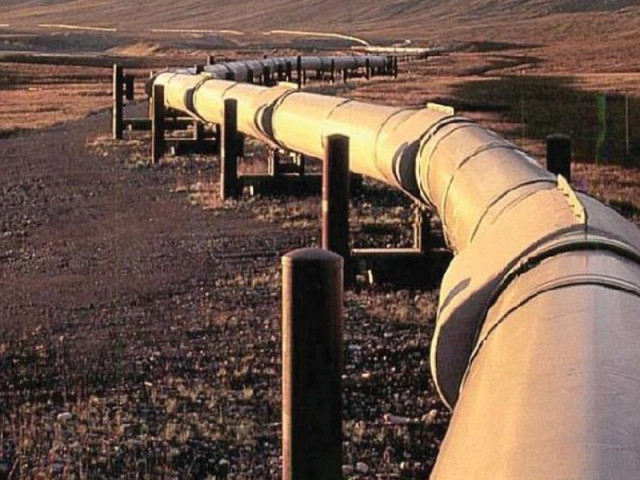TAPI pipeline: Indian and Pakistani firms sign gas purchase contract
1,800km long pipeline can supply 90 mcmd of natural gas.

State-owned energy companies from Pakistan and India have signed a ‘Gas Sales and Purchase Agreement’ with Turkmenistan’s national oil company Turkmengaz that will lead to the supply of up to 90 million cubic metres of natural gas a day (mcmd) via the Turkmenistan-Afghanistan-Pakistan-India (TAPI) pipeline.
Turkmen officials have said the proposed pipeline could carry one trillion cubic metres of gas over a 30 year period, or 33 billion cubic metres a year. “After more than 20 years of diplomacy, the 1,800 kilometre natural gas pipeline that connects one of Central Asia’s largest energy suppliers with South Asia’s critically underserved market has moved a step forward,” said a press statement of Asian Development Bank (ADB) released on Wednesday.
India’s GAIL Limited and Pakistan’s Inter-State Gas System Private Limited were the parties involved in the agreement with Turkmenistan. Moreover, Afghanistan has also signed a memorandum of understanding on long term gas cooperation with Turkmenistan, the statement added. India and Pakistan are both hungry for gas supplies and Turkmenistan, formerly part of the Soviet Union, is keen to free itself from reliance on gas exports to Russia. The bulk of exported gas will help meet surging energy demand in the South Asian region, where energy needs are set to double by 2030, while the remainder will alleviate chronic power shortages in Afghanistan. The Indian government said in a statement on May 17 that the pipeline will turn operational in 2018. India and Pakistan will each get 38 mcmd of gas, while the remaining 14 mcmd will be supplied to Afghanistan, it said.
“This is a historic moment of unparalleled regional cooperation,” said ADB’s Central and West Asia Department Director General Klaus Gerhaeusser. ADB has played a leading role in coordinating and facilitating the TAPI negotiation process over the past 10 years. “The pipeline represents a win-win scenario for each member country, as it will give Turkmenistan more diverse markets and help fuel the energy hungry economies to the South,” Gerhaeusser said. He added that each country stands to gain, terming it not only as the `Peace Pipeline,’ but a gas supply channel to prosperity. With the TAPI channel in place, Turkmenistan’s gas will cater a greater range of overland markets, diversifying from its existing markets in Russia, Iran, and China. However, an analyst at IHS Global Insight Lilit Gevorgyan said that while the pipeline could be a lucrative commercial project, it would run through more than one high security risk country, “which puts the actual construction under a big question mark”.
The sale-purchase agreement between Afghanistan and Turkmenistan is expected to be finalised soon. The next step for the four TAPI nations is to attract commercial partners to build, finance, and operate the pipeline, estimated in 2008 to cost at least $7.6 billion. Analysts and officials now believe the construction could cost between $10 billion and $12 billion.
Separately, an Indian Oil Ministry official said last week that the transit fee for the gas had been fixed at about 50 cents per million British thermal units. India imports 80% of its oil demand while falling output has forced it to buy costly liquefied natural gas.
Published in The Express Tribune, May 24th, 2012.



















COMMENTS
Comments are moderated and generally will be posted if they are on-topic and not abusive.
For more information, please see our Comments FAQ